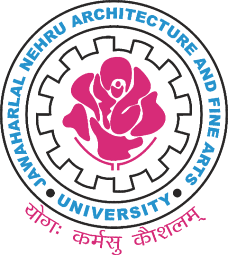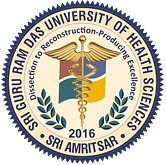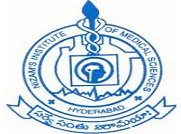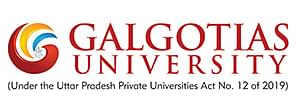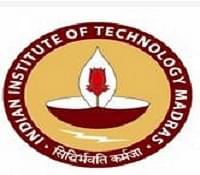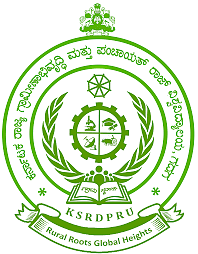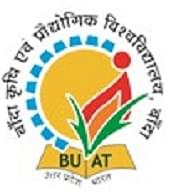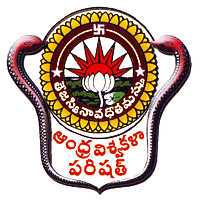Introduction about Ph. D in Resource Economy
A PhD in Resource Economy from best college is an advanced academic program that delves into the economic aspects
of natural resource management, environmental sustainability, and the interplay
between economic development and resource conservation. This interdisciplinary
field combines principles of economics, environmental science, and policy
studies to address the complex challenges of managing natural resources in a
sustainable and economically viable manner.
Overview
Resource Economy focuses on the allocation, utilization, and
conservation of natural resources such as water, minerals, forests, and energy.
It examines how these resources can be managed effectively to balance economic
growth with environmental sustainability and social equity. The program is
designed to equip scholars with the skills and knowledge to analyze
resource-related economic issues, develop sustainable policies, and contribute
to academic and policy-oriented solutions.
Objectives
The primary
objectives of the program are to:
Analyze Economic
and Environmental Interactions: Understand the complex relationships between economic activities and
natural resource use, including the impact of economic policies on resource
sustainability.
Develop Sustainable
Resource Management Strategies: Formulate and evaluate policies and practices that promote the
sustainable use and conservation of natural resources.
Advance Knowledge
in Resource Economics:
Conduct original research that contributes to the academic field of resource
economics and informs policy-making.
Promote
Interdisciplinary Approaches:
Integrate knowledge from economics, environmental science, and policy studies
to address resource management challenges.
Curriculum and Research Areas
The curriculum
typically includes core courses, electives, and extensive research. Core areas
of study might include:
Natural Resource
Economics: Economic
theories and models related to the use and management of natural resources.
Environmental
Economics: Analysis of
environmental policies, externalities, and valuation of environmental goods and
services.
Sustainable
Development: Principles and
practices of sustainable development, focusing on balancing economic growth
with environmental protection.
Policy Analysis and
Design: Development and
evaluation of policies aimed at managing natural resources sustainably.
Quantitative
Methods: Statistical and
econometric techniques for analyzing resource-related data.
Research areas can
vary widely and may encompass topics such as:
Economic impacts of
resource extraction and conservation.
Policy instruments
for sustainable resource management (e.g., taxes, subsidies, cap-and-trade
systems).
Valuation of
ecosystem services and natural capital.
Climate change
economics and its implications for resource use.
Socio-economic
aspects of renewable energy adoption.
Fieldwork and Practical Experience
Students often
engage in fieldwork and practical projects, collaborating with government
agencies, NGOs, and international organizations. Practical experience might
include:
Conducting field
studies on resource use and management practices.
Participating in
policy analysis projects with governmental or non-governmental organizations.
Collaborating with
research institutes focused on sustainable resource management.
Career Opportunities
Graduates of this
program are well-equipped for diverse careers in academia, research
institutions, government agencies, international organizations, and the private
sector. They may pursue roles such as:
Environmental and
resource economists.
Policy analysts and
advisors.
Sustainable
development consultants.
Academic
researchers and professors.
Environmental
managers and sustainability officers.
What is admission process for Ph. D in Resource
Economy ?
The admission process for PhD in Resource Economy involves several steps designed to assess
the candidate's academic qualifications, research potential, and alignment with
the program’s focus. Here is a detailed outline of the typical admission
process:
1. Research Programs and Identify
Supervisors
Research
Institutions: Identify
universities and research centers that offer PhD programs in Resource Economy
or related fields.
Potential
Supervisors: Contact
faculty members whose research aligns with your interests. Establishing a
connection with potential supervisors can strengthen your application.
2. Meet Academic Requirements
Educational
Background: A master’s
degree in economics, environmental science, natural resource management, or a
related discipline is usually required. Exceptional candidates with a strong
bachelor’s degree and significant relevant experience may also be considered.
Academic
Transcripts: Provide
official transcripts from all post-secondary institutions attended,
demonstrating a strong academic record.
3. Prepare Application Materials
Research Proposal: Develop a detailed research proposal that
outlines your intended research topic, objectives, methodology, and
significance. This proposal should align with the interests of potential
supervisors and the program’s focus.
Personal Statement: Write a personal statement explaining your
academic background, research interests, career goals, and why you are
interested in this specific PhD program.
Curriculum Vitae
(CV): Submit an updated CV
highlighting your academic achievements, research experience, publications, and
any relevant work or volunteer experience.
4. Letters of Recommendation
References: Obtain strong letters of recommendation
from academic or professional references who can attest to your research
capabilities, academic performance, and suitability for a PhD program.
Typically, at least two to three letters are required.
5. Standardized Tests (if
required)
GRE/GMAT: Some programs may require standardized
test scores such as the GRE (Graduate Record Examination) or GMAT (Graduate
Management Admission Test). Check the specific requirements of each program.
6. Language Proficiency
English Proficiency
Tests: For non-native
English speakers, most institutions require proof of English proficiency
through tests like TOEFL (Test of English as a Foreign Language) or IELTS
(International English Language Testing System).
Minimum Scores: Each institution will have its own minimum
score requirements for these tests.
7. Submit Application
Online Application: Complete the online application form
provided by the institution. Ensure all required documents are uploaded or sent
as specified.
Application Fee: Pay any applicable application fees.
8. Interview (if required)
Interview Process: Some programs may require an interview as
part of the selection process. This could be conducted in person, over the
phone, or via video conferencing. The interview typically assesses your
research interests, academic background, and motivation for pursuing the
program.
9. Funding and Scholarships
Apply for Funding: Explore funding options such as
scholarships, grants, and assistantships. Many programs offer funding packages
that cover tuition and provide a stipend for living expenses.
10. Decision and Enrollment
Admission Decision: After the review process, the admissions
committee will notify you of their decision. If accepted, you will receive an
offer letter.
Acceptance and
Enrollment: Accept the
offer and complete any additional enrollment procedures required by the
institution.
What is eligibility process for Ph. D in Resource
Economy ?
The eligibility process for PhD in Resource Economy typically involves meeting specific
academic, research, and sometimes professional criteria. Below are the general
eligibility requirements:
1. Academic Qualifications:
Master's Degree: Applicants usually need a master’s degree
in economics, environmental economics, natural resource management,
environmental science, or a related field. Some programs may accept exceptional
candidates with a strong bachelor’s degree.
Academic
Transcripts: Provide
official transcripts from all post-secondary institutions attended,
demonstrating a strong academic record. Institutions often have minimum GPA
requirements.
2. Research Experience:
Relevant Research: Prior research experience in economics,
environmental economics, or resource management is beneficial. This can include
involvement in research projects, thesis work, publications, or professional
work experience.
Research Proposal: Submission of a detailed research proposal
outlining your intended research topic, objectives, methodology, and
significance. The proposal should demonstrate alignment with the program’s
focus and the expertise of potential supervisors.
3. Language Proficiency:
English Proficiency: For non-native English speakers, proof of
English proficiency is usually required. Common tests include the TOEFL (Test
of English as a Foreign Language) or IELTS (International English Language
Testing System). Minimum scores are often specified by the institution.
4. Standardized Tests (if required):
GRE/GMAT: Some programs may require standardized
test scores such as the GRE (Graduate Record Examination) or GMAT (Graduate
Management Admission Test). Check the specific requirements of each program.
5. Letters of Recommendation:
References: Strong letters of recommendation from
academic or professional references who can attest to your research
capabilities, academic performance, and suitability for a PhD program.
Typically, at least two to three letters are required.
6. Personal Statement:
Statement of
Purpose: A personal
statement or letter of intent explaining your academic background, research
interests, career goals, and why you are interested in pursuing a PhD in
Resource Economy. This should reflect your passion for the field and your
potential contributions.
7. Curriculum Vitae (CV):
Detailed CV: An updated CV that includes your academic
achievements, research experience, publications, relevant work or volunteer
experience, and any other pertinent information.
8. Interview (if required):
Interview Process: Some programs may require an interview as
part of the selection process. This could be conducted in person, over the
phone, or via video conferencing. The interview typically assesses your
research interests, academic background, and motivation for pursuing the
program.
Additional Requirements:
Some programs may
have additional requirements such as specific coursework, certifications, or
field experience. It’s important to review the specific prerequisites for each
program you are interested in.
Meeting these
eligibility criteria ensures that you are well-prepared for the demands of a
PhD program in Resource Economy and capable of contributing meaningfully to
research and policy discussions in this field.
What is syllabus for Ph. D in Resource Economy ?
The syllabus for PhD in Resource Economy is designed to provide a comprehensive understanding of
economic principles, resource management strategies, and policy frameworks
related to natural resource use and conservation. The program typically
includes a combination of core courses, electives, research seminars, and
dissertation work. Below is an outline of the typical components and subjects
that might be included in the syllabus:
1. Core Courses:
These foundational
courses cover key concepts and theories in resource economics and management:
Microeconomic
Theory: Advanced study of
consumer and producer behavior, market structures, and welfare economics, with
a focus on natural resource markets.
Macroeconomic
Analysis: Examination of
economic growth, inflation, unemployment, and fiscal and monetary policies,
considering their implications for resource management.
Environmental
Economics: Analysis of
market failures, externalities, and policy instruments for addressing
environmental and resource-related issues.
Natural Resource
Economics: Study of the
economic principles governing the extraction, allocation, and conservation of
natural resources, including renewable and non-renewable resources.
Econometrics: Statistical methods for analyzing economic
data, estimating econometric models, and conducting empirical research in
resource economics.
2. Elective Courses:
Electives allow
students to specialize in specific areas of interest or address
interdisciplinary topics:
Energy Economics: Analysis of energy markets, energy
policies, and the economics of renewable and non-renewable energy sources.
Water Resource
Economics: Study of water
allocation, pricing, and management, considering issues such as scarcity,
pollution, and water rights.
Forest and Land
Economics: Examination of
forest management, land use planning, and the economic valuation of ecosystem
services.
Climate Change
Economics: Evaluation of
the economic impacts of climate change, mitigation and adaptation strategies,
and international climate agreements.
Development
Economics: Exploration of
economic development theories and policies, with a focus on natural
resource-dependent economies.
Policy Analysis and
Evaluation: Methods for
analyzing and evaluating environmental and resource policies, including
cost-benefit analysis and policy modeling.
3. Research Seminars and Workshops:
Research
Methodologies: Advanced
methods for conducting economic research, including theoretical modeling,
econometric analysis, and experimental economics.
Literature Review
and Research Design:
Techniques for reviewing and synthesizing existing literature, identifying
research gaps, and formulating research questions.
Academic Writing
and Publishing: Skills for
writing research papers, dissertations, and academic articles, as well as
strategies for publishing in peer-reviewed journals.
4. Dissertation Research:
Proposal
Development: Formulation of
a research proposal outlining the research objectives, methodology, and
significance of the study.
Independent
Research: Conducting
original research under the supervision of a faculty advisor, typically
culminating in a doctoral dissertation.
Dissertation
Writing: Compilation and
presentation of research findings in a dissertation, followed by a defense
before an academic committee.
5. Interdisciplinary Collaboration and Conferences:
Collaborative
Projects: Participation in
interdisciplinary research projects with other students, departments, or
external organizations.
Conferences and
Workshops: Attendance and
presentation at national and international conferences and workshops to share
research findings, receive feedback, and network with peers and experts in the
field.





